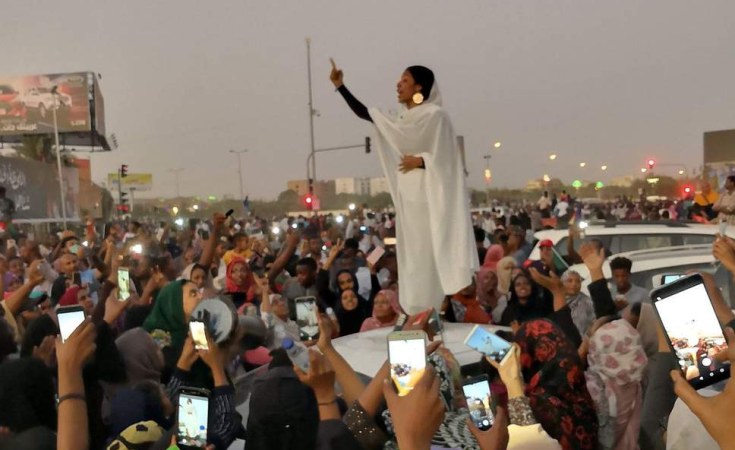Dabanga Sudan — In Sudan, a noteworthy development is taking place where democratic advocates, who were previously subjected to brutal suppression by Sudan's military, are now aligning with the Sudan Armed Forces (SAF) in the war against the paramilitary Rapid Support Forces (RSF). The activists find themselves alongside fighters associated with Islamist groups that are supportive of ousted President Omar Al Bashir and his regime.
The resistance committees, a network of grassroots organisations at the forefront of Sudan's pro-democracy revolution, along with other impassioned youth groups such as Angry Without Borders and Kings of Clashes, have rallied to the ranks of the army in response to the widespread transgressions committed by the RSF, Mohammed Amin reported in Middle East Eye (MEE) last week.
Speaking to MEE on why they decided to take this step, an activist who chose to remain anonymous explained: "We started to organise to protect ourselves from RSF violations - we did this without any real help from SAF, which wasn't even in our neighbourhoods. So, the story is simply about defending ourselves, our families, and properties from RSF attacks, and our priority now is to expel the RSF from Khartoum."
These young Sudanese activists, who played a pivotal role in the removal of Al Bashir from power, have now enrolled in military training camps set up by the army. SAF Commander-in-Chief Gen Abdelfattah El Burhan called for a 'general mobilisation' of all young and capable people to join the SAF to fight against the RSF, in a nationwide speech at the end of June.
Another activist told MEE that "joining the army is very easy. You just need to go to the nearest military camp to be trained, there are no conditions. Then you get a weapon, join any military unit, and begin your duties."
Activists from Angry Without Borders, who engaged in violent altercations with the army in the past, , asserted that their support is directed towards lower-ranking officers and soldiers, but that they withhold support to high-ranking generals, whom they accuse of involvement in the killing of protesters during the revolution that ousted Al Bashir in April 2019.
"We are still against the top generals of the army and still against the old regime, but we believe that the army is supposed to be for the entire Sudanese population and it's the duty of the national army to protect the people," Khartoum resistance committees recently stated, as quoted by MEE.
While some resistance committees and labour unionists in Khartoum openly endorse the army's stance against the RSF, Sudan's revolutionary movement does not exhibit unanimous support. Certain factions view both the army and RSF as "counter-revolutionary entities" that are opposed to the ideals of the revolution and democracy.
Ahmed El Bushra, founder of Angry Without Borders, told Amin that "no revolutionary institution has declared official support for the army", adding that "this was an individual decision by those revolutionaries.
"This war is a clear conflict of interests between the generals on both sides," El Bushra said.
This integration of democratic activists into the army's ranks has brought together people with diverse political ideologies, including radical Islamists who joined the El Bara Bin Malik Brigade.
Last week, Radio Dabanga covered an investigation by Alaraby into the group, which found a connection between El Bara Bin Malik Brigade and the army's Reserve Department that took up many paramilitaries of the Popular Defence Forces (PDF*) within its Special Task Forces, after the militia was dissolved by the government of PM Abdallah Hamdok in mid-2020.
__________
* The paramilitary Popular Defence Forces (PDF) was established after Brig Omar El Bashir took power in a military coup in June 1989. Members received training, uniforms, weapons, and food, but no salaries. The PDF also operated as a reserve force for the SAF. It also played a major role in the distribution of weapons to, and military training for, tribal militias. After the ousting of Al Bashir in April 2019, the PDF remained operational, in particular in South Kordofan, until early June 2020, when the militia was officially dissolved.


